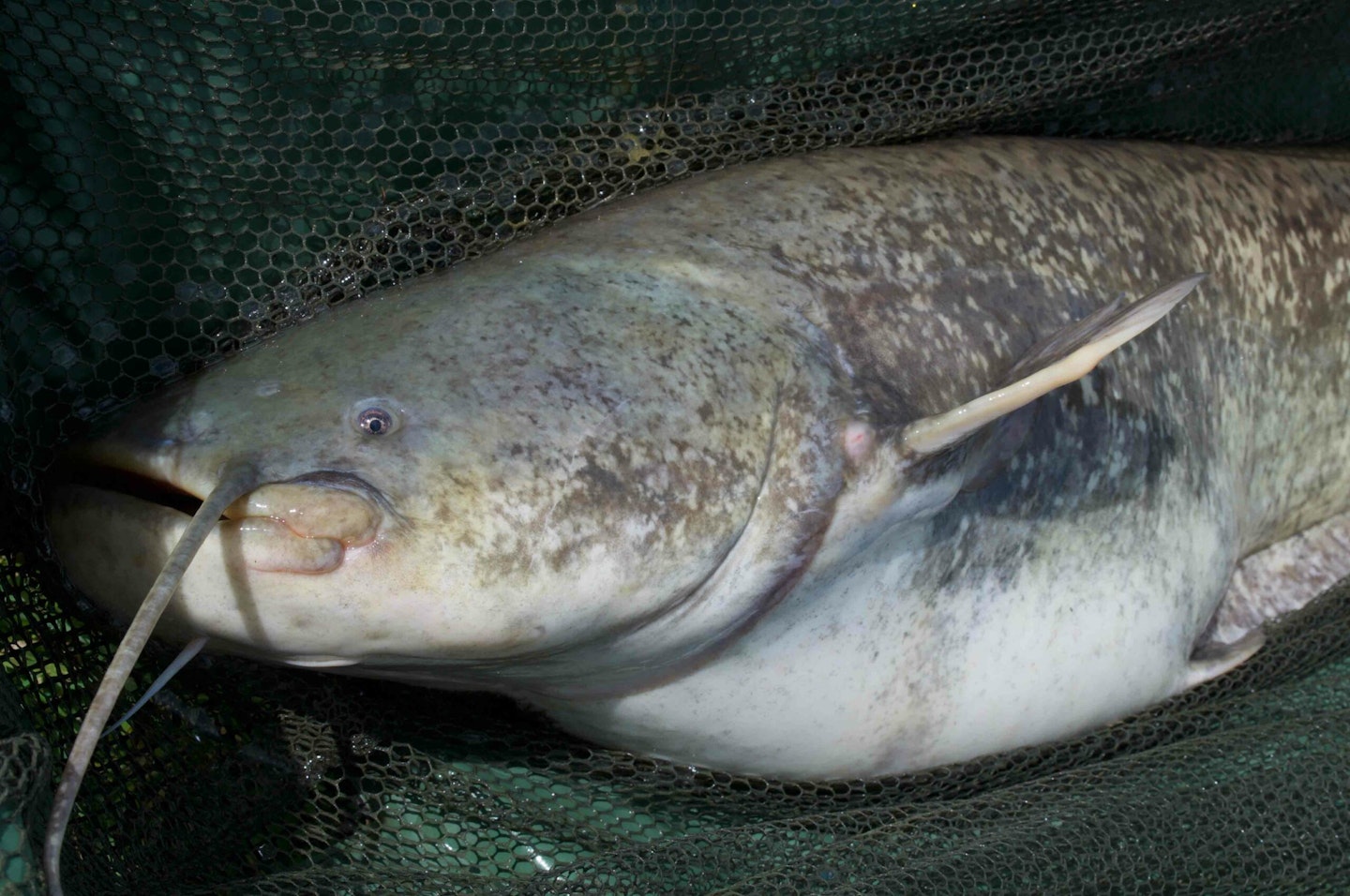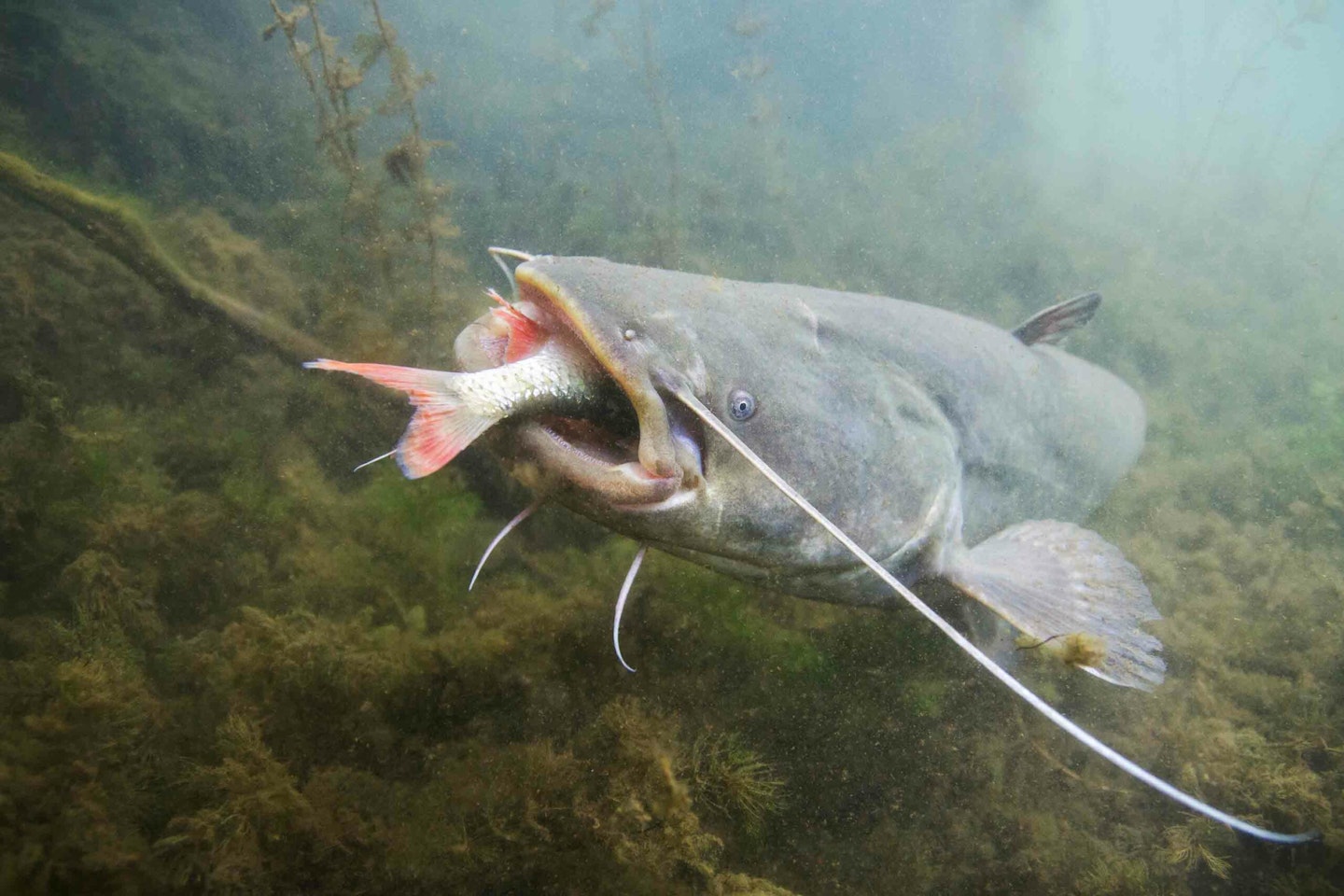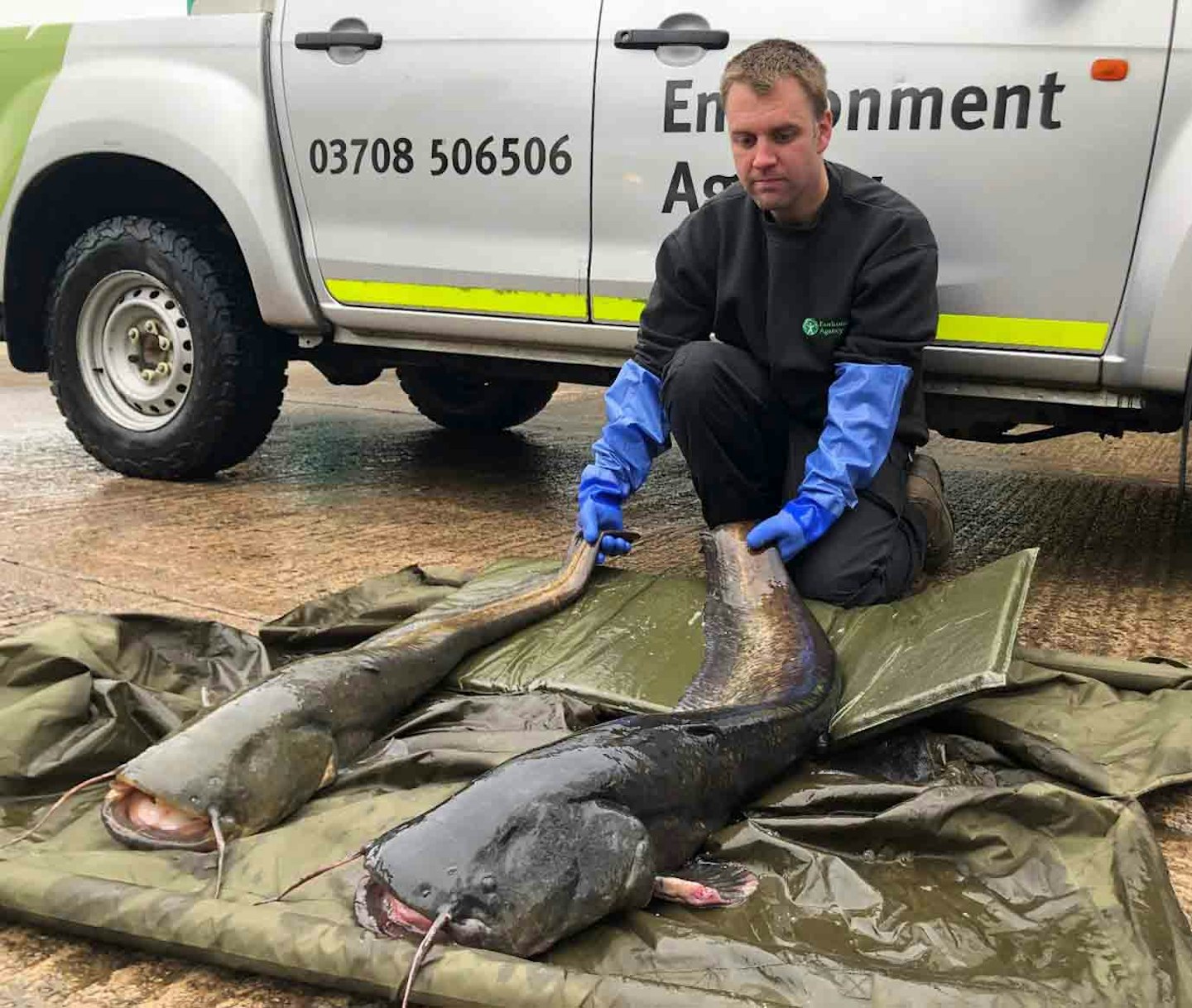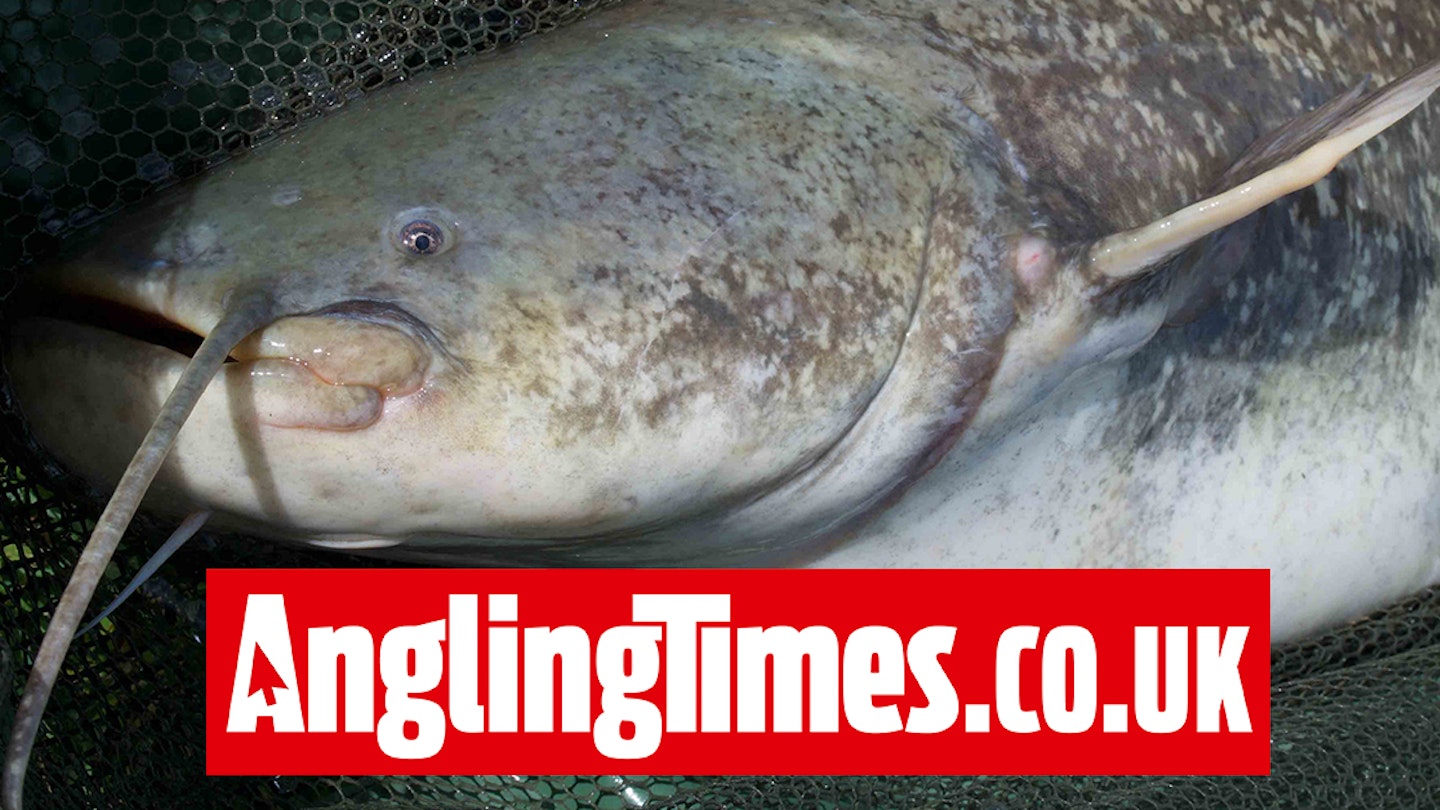Wether you see them as a prize catch or an invasive menace, catfish are once again dividing opinion across the angling world.
That’s because, in spite of their popularity with anglers, experts are worried about the major potential impact on natural waters and native species in the UK. Or at least, that’s the stance upheld by the Environment Agency, which has overseen recent efforts to control the illegal and accidental spread of the species.
The Catfish Conservation Group welcomes a more tolerant approach to the species, having worked with the EA and others to rehabilitate large fish.

“Catfish haven’t proliferated as some people feared”, general secretary Steve Stewart told us.
“Big fish out of rivers like the Thames and Trent are still very rare beasts. The Ouse could be an exception, because it’s a warmer river.”
Keen to see the species recognised, Steve and the CCG continue to push for the reclassification of the wels catfish and reinstatement of the British record. “They’re here to say, but they don’t deserve all the negative publicity they get,” said Steve. “They do well in so many lakes and find a balance, and we’ve yet to see one where other fish have been cleared out. “
One of the group’s main challenges is to educate anglers on how to fish for wels safely, as so many fisheries have them these days and yet they demand robust, specialist tackle and careful handling.
Find out more at www.catfishconservationgroup.co.uk.

What is the legal position? Where does the EA stand?
AS catfish are still officially classified as a non-native invasive species, the Environment Agency’s position is unchanged, and it remains technically illegal to return a catfish to any venue where they’re not present under licence. This alone is a contentious issue, however, and while the EA isn’t keen on cats, it has assisted with getting large fish moved humanely to safer waters.
The Agency states that while it accepts catfish and some non-natives at isolated stillwaters, where there is no risk of their spread, it is actively against their presence in natural waters, where the EA says they “upset the ecology of a water and act as vectors for new parasites and diseases.”
READ THE FULL DEBATE FROM A RECENT 'TALKING POINT' ARTICLE IN ANGLING TIMES MAGAZINE, HERE.

